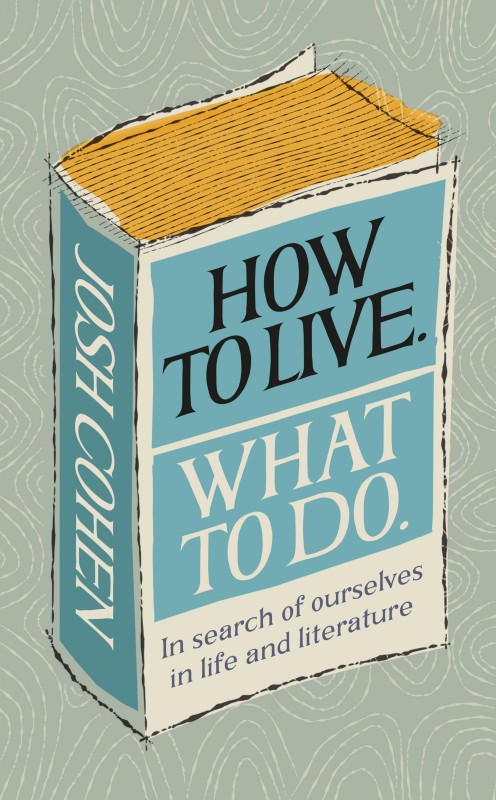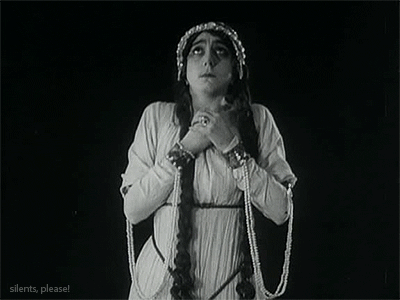Address change to reviews.pivic.com
This site is changing its address.

Josh Cohen is a psychotherapist who is also an attentive and investigative reader. He’s written this, a book that’s an analytical trip through life via books; It starts with books about youth and ends with books about old age.
It could easily be a drab, washed-out slog through the marshes of one’s mind via books of old, white men, but that’s how it didn’t turn out.
When psychotherapy is successful, it works in much the way that great fiction works: that is, it induces the near-miraculous sensation of the very core of ourselves being seen. It sets a mirror before us, in which we see not only the self we know, but the self we don’t. We discover regions of ourselves we were barely aware of, to sometimes exhilarating and sometimes distressing effect.
Part of the problem is that we’re trapped inside our own heads, unable to see ourselves from the outside. This accounts for why we’re so much more adept at pointing out the habitual mistakes of others than our own. Here, fiction can help in ways real-life experience usually can’t. What the best fiction does – which is also, hopefully, what the psychoanalyst would do – is help us to experience the same errors and illusions from the inside rather than to view them from on high, to enter the world of the person who made them for long enough to understand why. This is the viewpoint I’d like us to take up in the course of this book, as we follow twenty-four fictional characters, as well as some non-fictional ones, across eight stages of life.
Interestingly enough, the book starts off with Lewis Carroll’s Alice in Wonderland, published in 1865. Written by a shrewd and intelligent man, we follow child Alice as she drinks a potion that makes her small, walks through a tiny hole in a wall, and tumbles down to the feudal land of cards, cats, play, life, and death, all the while, holding us fixed to the page regardless of how old we are. How many books manage this?
This chasm between adult and child is as much a problem for adults as it is for children. The Hungarian psychoanalyst Sándor Ferenczi called it a ‘confusion of tongues’; adults and children seem to speak the same language but are separated by a cognitive and emotional chasm that mires them in permanent misunderstanding. The child’s world is too elastic and excitable, the adult’s too rule-bound and repressed. The child doesn’t yet know what an adult mind is like, the adult has forgotten what it is to inhabit a child’s mind. That teacher was right in a way: it doesn’t make any sense. This might be one explanation for why we write and read stories. Stories, and especially the ones we come to love as children, loosen the grip of logic and law on our inner lives. They help us reach the child still lurking in us, whose playfulness hasn’t been entirely crushed by the demands of the adult world – don’t make up silly stories, don’t excite yourself, don’t be childish. One of the most common ways this conflict between child and adult realities manifests itself is in our different experiences of time. ‘Not being childish’ means conformity to a regimented clock-time, adapting oneself to rhythms, schedules and speeds imposed from the outside.
One of Cohen’s fantastic talents is to spin a story and make it relate very well to his current analysis.
He doesn’t only relate to Alice and her trip through the dream land: he makes us feel it:
Telling Alice that her kitten doesn’t know how to play chess won’t help her grow up. On the one hand, she knows that perfectly well. On the other, if she’s allowed to reserve a space in herself where her kitten can play chess, her imaginative range and curiosity will only be enriched. This is how she’s able to move with such open curiosity and easy acceptance through the anarchic and disturbing dreamworlds of Wonderland and Looking-Glass. She simply has no use for the objection that this or that isn’t real. In Alice’s world, reality and illusion are intimate friends.
Cohen tells stories from his professional life that frame elements of the books. Even if you’ve not read any of these books, Cohen’s frame, his analysis, and words can be interesting enough to make you want to read more. Here’s an example:
In March 2020, as the coronavirus raged, must-read lists of dystopian novels from Camus’s The Plague to Emily St John Mandel’s Station Eleven began to spread alongside it. With uncanny percipience, these books anticipated the damage wrought by an imagined pandemic to the fabric of civilisation. They Came Like Swallows appeared on none of these lists. Published in 1937, it doesn’t predict an imagined future horror, but memorialises an actual and recent one. Its canvas is not the broad one of a total society but the miniature one of a single family. As sparse in external incident as it is rich in interior drama, it explores how the basic security of our relationships and our sense of self can be irreparably damaged by events beyond our control. In the weeks following the outbreak of the virus in the UK, the resonance of this theme hit me hard. Lockdown conditions forced me, like all my colleagues, to move my psychoanalytic practice out of the consulting room and onto a digital platform. Having conducted no more than a handful of phone or teleconferencing sessions annually over the last decade, I was now listening and speaking to pixelated men and women in an empty room for eight or nine hours a day.
The adolescent is frequently pulled between wanting and rejecting the love and reassurance she enjoyed as a child; between cuddling up to her mother and telling her to just leave me alone, I’m not a kid, all right! On the one hand, we want to hold on to our dependence and the comforts it brings; on the other, we desperately want rid of it, to be spared the reminder that we remain so much in need, materially and emotionally.
Some of Cohen’s sentences are words that are beautifully put together. They are, to me, especially blinding both when touching upon nuance and the lack thereof. On the later:
D.H. Lawrence, from whom we’ll hear more later, reminded us that first love feels nothing like the Hallmark cliché of songbirds chirping in a pastel sky. It is more like a violent and merciless invasion by some unknown alien force.
On Turgenev’s First Love:
The boy who catches sight of the beautiful Princess Zinaida in the next-door garden isn’t prepared for the bodily and emotional shock of love at first sight. The arousal of tenderness, lust, longing and awe brings both ecstasy and distress.
‘In your eyes I’m just a child,’ he protests to her, only to be told in response, ‘Well, yes, you are a child, but a nice, good, clever child, whom I love very much.’ Could a more brutal wound be imagined to adolescent male dignity and self-respect?
Perhaps the strangest thing of all is that the ultimate source of this overwhelming happiness lies in the deepening awareness of our mortality. We all know we’re going to die; our casual conversation is peppered with references to life being too short, to only living once. But it isn’t until we enter middle age, when our bodies begin to betray us and the generation that preceded us starts to die off, that mortality becomes palpable in the air we breathe.
One of the great paradoxes of psychoanalytic work, at once baffling and entirely human, is that people enter it seeking change, and then use it to demonstrate to themselves and their therapist that change is impossible. The force for potential renewal thus morphs into grim entrenchment in the unhappiness that brought them to me. This is when the work is hardest and most dispiriting, as though its secret and sinister purpose were to infect me with the very misery I’m trying to alleviate.
Often enough, I hope to help a patient see that life is worth living, only to find myself half-persuaded that it isn’t. This is the feeling of powerlessness in the face of another’s determined effort to seal themselves in their own unhappiness. This dynamic, I’ve found, is more liable to set in with patients in middle age. Disappointment with the state of their life, measured against the high hopes they once had for it, leads to a knowing cynicism towards the very idea of hope or change. More than once, I’m told early on in a treatment that if I were honest, I’d concede that their life is an irredeemable failure and give up on them.
Cohen has written a book that is riveting, interesting, inspirational, and invigorating. To me, it’s also something that cast introspection into the fore. To bring more perspectives into one’s life is daunting and frightening at times. But, as he shows, it’s almost always worth it. Books can both be the mirror into one’s soul and the abyss that stares back into us.
